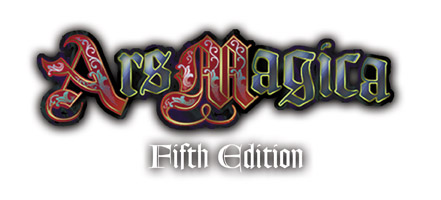Mythic Europe: Difference between revisions
No edit summary |
|||
| Line 62: | Line 62: | ||
'''Baron''' | '''Baron''' | ||
'''Advocati''' | '''Advocati''' - Also known as ''avoués'', this is a title that represents the role of representing Church bodies, mainly abbeys and monasteries, in lay matters. Typically the Advocatus will represent the senior churchman in his capacity as feudal lord. So, for example, the churchman might be an abbot. In this case the Advocatus will act as the abbot's representative in the courts of his superior, exercise secular justice in the abbot's name in the abbatial court, and lead the retainers of the abbey to battle under the banner of the patron saint. The advocatus plays a more important part in the feudal polity of the Empire and of the Low Countries than in France. | ||
Also known as ''avoués'', this is a title that represents the role of representing Church bodies, mainly abbeys and monasteries, in lay matters. Typically the Advocatus will represent the senior churchman in his capacity as feudal lord. So, for example, the churchman might be an abbot. In this case the Advocatus will act as the abbot's representative in the courts of his superior, exercise secular justice in the abbot's name in the abbatial court, and lead the retainers of the abbey to battle under the banner of the patron saint. The advocatus plays a more important part in the feudal polity of the Empire and of the Low Countries than in France. | |||
Revision as of 00:32, 8 January 2012
| Ars Magica Primer | |
|---|---|
 | |
| Game Setting | |
| Mythic Europe | |
| The Order of Hermes | |
|
The Order of Hermes The Code of Hermes The Peripheral Code Hermetic Book Cycle |
Mythic Europe is much like the Europe of 1220, the middle ages, but with dragons, demons, angels, and faeries all unquestionably real, and no aspect of society is untouched by myth.
-Ars Magica Fifth Edition, p. 4
Mythic Europe is the canonical setting where Ars Magica sagas take place. While closely based on early 13th century Europe, Mythic Europe deviates from history by incorporating myth, legend, and wild unabashed fantasy into the historic background.
In some respects, Mythic Europe is very similar to historical Europe. It occupies the same geographical region, its inhabitants cling to the same medieval beliefs and values, it has the same social institutions such as the Catholic Church and even specific persons such as the Holy Roman Emperor Frederic II and Pope Gregory IX.
However, Mythic Europe is awash with magic and the supernatural. The power of God is manifest, faeries bargain with mortals, demons hunger for souls, and wizards live in great towers. Ars Magica focuses on the tales of wizards, which by the nature of things tends to accentuate the Mythic elements of the setting.
Above all, Mythic Europe is not fixed. While canon presents a certain vision of Mythic Europe, with a certain level of historical veracity and a certain level of myth, storyguides and troupes are encouraged to vary from canon and historical precedents when running their own sagas.
The Order of Hermes and the Realms of Power
Main Article: The Order of Hermes and the Realms of Power
European Powers
Main Article: Powers of Europe
Some recent history in western Europe.
The Catholic Church
Main Article: The Catholic Church
Some information known about the Catholic Church.
Social Organization
Main Article: Social Organization
Transportation
Distances
- A good walking distance for a moderately encumbered man is 20 miles per day.
- A good distance for an unencumbered man accompanying a horse carrying no more than 150 lb is 30 miles per day.
- The normal distance for any type of carrier is from 18 to 25 miles per day but this assumes a suitable route.
Carrying Capacities
- A packhorse is capable of carrying 400lb of goods.
- A two-wheeled cart ("charette") drawn by two or three horses can carry can carry between 1,200 and 1,500 lbs. This requires cleared roads and fords as a minimum.
- A four-wheeled wagon, with normally six horses, can carry 2,800 to 3,300lb. This required good roads, with bridges.
The state of the road will define whether a four-wheeled wagon can be used. It is rare that roads of sufficient quality exist for anything but short distances, except perhaps in Northern Italy.
Costs
- To move goods such as stone by land, in a large wagon, costs from 9d to 18d per ton per mile.
- Using a barge on a slow-moving navigable river costs 1d to 3d per ton per mile.
Noble Titles
Earl
Sheriff
Baron
Advocati - Also known as avoués, this is a title that represents the role of representing Church bodies, mainly abbeys and monasteries, in lay matters. Typically the Advocatus will represent the senior churchman in his capacity as feudal lord. So, for example, the churchman might be an abbot. In this case the Advocatus will act as the abbot's representative in the courts of his superior, exercise secular justice in the abbot's name in the abbatial court, and lead the retainers of the abbey to battle under the banner of the patron saint. The advocatus plays a more important part in the feudal polity of the Empire and of the Low Countries than in France.